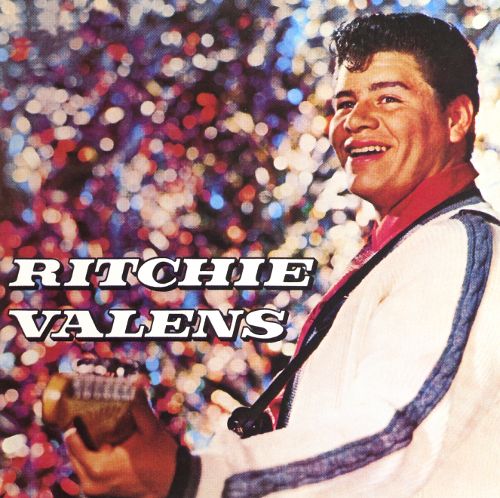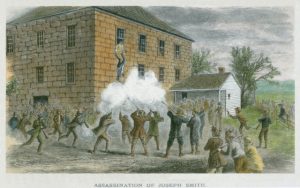It is the late 1950’s in southern California, and a young superstar named Ritchie Valens, whether he knows it or not, is about to change the culture of America forever. In a matter of eight months, the Hispanic student at San Fernando High School just became one of the biggest celebrity musicians of the day.1 After dropping out of school in order to record and tour full time, Richard Valenzuela was making phenomenal Rock N’ Roll music, both on stage and in the studio. While America quickly became obsessed with the undeniably talented teen, nothing could prepare them for his next release.
From the beginning, the odds were against young Richard. He was merely sixteen, and, as a young Latino, there were few opportunities for someone like him in the American mainstream music industry, let alone in Rock ’n Roll. He saw proof of this fact early in his career, facing prejudice and discrimination at every turn. He was even forced to change his name to Ritchie Valens in order to make it easier for his fans to pronounce—a compromise that gave way to controversy and anger from his family.2 Ritchie realized that, even though he was opposed to the changing of his name, it would be a smart move for him as a musician. But even after his family name was taken from him, he refused to let go of his heritage. In fact, it seemed that he tightened his grip.
Ritchie wanted to do something to pay tribute to his Latino culture. With the assistance of Bob Keane of Del-Fi Records, he decided he would combine the two worlds that he was now so heavily a part of, by turning the Spanish tune “La Bamba” into an upbeat rock song. Only knowing English, Ritchie had to learn the lyrics of the traditional Mexican folk song phonetically. After countless takes in the studio, he recorded the song on a two-track record with a second soon-to-be hit Oh, Donna.3
Ritchie released the track and promptly shook up America. Most people had no idea what the song was about, but, for one of the first times in modern music history, they didn’t care. The charismatic rhythm of the song combined with Ritchie’s unique voice; it was impossible to dislike it, and the song spread like wildfire, taking his career to new heights.
Seeing Ritchie perform was a spectacle only few Americans were graced with. His energy and impeccable guitar skills would engage the thousands of audience members from start to finish.4 While the crowd was swooning over every single song, there was nothing like that epic guitar riff that carries the tune of La Bamba.3 As soon as Ritchie’s guitar pick hit his strings, the fans simply could not contain themselves.

Unfortunately, Richard Valenzuela’s career was ended even quicker than it begun. Soon after his explosive rise to fame was sparked, and before he could finish his tour, Ritchie Valens was killed in a plane crash along with fellow artists Buddy Holly and The Big Bopper J.P. Richardson.6 The tragedy triggered nation-wide shock, and the day became known by many as “The Day The Music Died.”7
Although his life was ended much too early, perhaps it was this terrible fate that immortalized him in music history. His music and the rest of Valens’ amazing life inspired the film La Bamba, a timeless and classic film. Ritchie’s brave move in the release of “La bamba” inspired and enabled many other Hispanic artists to begin to make their way into the spotlight, making it much more than just a great song. We see the repercussions still today, through modern Latin Rock bands and all the sub-genres surrounding them, and will without a doubt continue to experience the fruits of the song for decades to come. Needless to say, American music and culture would not be the same without Richard Valenzuela’s audacious contributions.
- Encyclopedia of World Biography, 2004, s.v. “Ritchie Valens.” ↵
- Salem Press Biographical Encyclopedia, January 2017, s.v. “Ritchie Valens,” by Scot M. Guenter. ↵
- “‘La Bamba’ one of the 100 most important American musical works of the 20th century,” Broadcast Transcript. Weekend All Things Considered, NPR, July 15, 2000. ↵
- St. James Encyclopedia of Popular Culture, 2nd ed. “Valens, Ritchie (1941–1959),” Candida Taylor. ↵
- “‘La Bamba’ one of the 100 most important American musical works of the 20th century,” Broadcast Transcript. Weekend All Things Considered, NPR, July 15, 2000. ↵
- Robert Wright, “The Day The Music Died,” Aviation Safety, July 1, 2015. ↵
- “What Went Wrong On The Day Music Died?” Interview by Robert Siegel, Melissa Block, All Things Considered, NPR, February 3, 2009. ↵



163 comments
Derek Esquivel
I have very much had heard of Richie Valens, but, I never knew that he was so young and even had dropped out of high school in order to begin his music career. It was also a truly devastating loss to the music business knowing that three great musicians would die at such an unexpected time. But, like during his music career of having all this fame at once during his time alive, he is still one of the major icons today and people are still playing his hit song all the time.
Reese Lujan
I saw the movie La Bamba about a year ago and I was fascinated by the culture and where Ritchie Valens had come from. I love the song La Bamba and I wanted to learn more about him and the reasoning behind his music. Its crazy how he barely spoke Spanish but his biggest hit was a Spanish pop song and that was the song he was known for which made him famous. He started his career at such a young age and made hits in such a short amount of time.
Miranda Alamilla
Although I have heard of Ritchie Valens, I had no idea of how much he struggled to get himself noticed. Having to change his name from Richard Valenzuela to Ritchie Valens must have been so bitter, and still being discriminated against after that must have made things worse. However, Valens only let this make him stronger and decided to combine the best of both worlds. As his stardom rose, so did the his limits of time on earth. Shortly after he began performing, Valens was killed in a plane crash along with fellow artists Buddy Holly and The Big Bopper J.P. Richardson. A tragic end to an amazingly epic life.
Alexandra Lopez
I’ve seen the movie La Bamba more than a hundred times with my father. He just adores the movie. He would tell me how great of an artist Richie Valens was. He still is considered a great artist, actually one of the greatest artists in history. His music career started at an early age and just progressed since then. Music today would be completely different had Ritchie not decided to continue down his path. Valens opened new doors to new sounds that no one else could do. He’s the reason some artist have sounds the way they do. Because of Ritchie Valens, there’s a new sound to music that nearly anyone can enjoy.
Cheyanne Redman
As a child going into my older years, I grew up watching La Bamba, I say it was one of my favorite movies. Without Richard I feel music would not be the same, I feel he broke down barriers that others were too scared of, and props to him because of all the adversity he faced growing up. He started his career at such a young age, and against the will of many people, and still managed to make something for himself. I feel that this article broadcasts how much of an impact he made on music, and is still continuing to make.
Andrew Dominguez
Ive seen the movie La bamba, and was very interested in reading this article. What is interesting just like Selena, Richie couldn’t speak Spanish, yet they preformed in a Spanish genre. Even though he changed his name he didn’t let the business change his roots which is very inspirational. Even though his music career was very short, his legacy lives on by inspiring many younger hispanic musicians.
Didier Cadena
Even though I was familiar with the song, I never knew Ritchie’s story. It was very interesting to learn about his backstory and how impactful he was for Hispanic artists to break out upon the music scene. His rise to fame, seems like one that many artists would dream of having. The article does a great job of highlighting the events that happened from his rise to fame to his untimely death.
Benjamin Arreguin
I grew up listening to Ritchie Valens, Carlos Santana, Don Omar, and other great latino musicians. Learning more about an artist who even my parents looked up to is amazing. He is an icon who triggered a domino effect of how artists shaped and styled their music. His music touched many people, and it’s amazing to see how much his talent his still appreciated still today in more than just the hispanic culture.
Angelica Padilla
I absolutely agree that music in America and culture would not be the same without contributions from Richard Valenzulea. Almost everyone has heard “La Bamba”, or has heard of the name. I felt like it didn’t take much for Richie to catch his audience’s attention and just happened instintaneous to please his audience. Richie Valens, among others have left an impact years later from the music they have created and sadly ended their lives early and unexpectedly.
Jasmine Jaramillo
It was a very bold move for Richard Valenzuela to start his career on a whim when he was sixteen. However, that bold move paid off and he was able to release a hit. Valenzuela sacrificed a lot to make a break in the industry and it’s quite sad to learn that it ended so soon. Valenzuela wasn’t able to continue making music that I’m sure would have influenced the world and united cultures. I have heard La Bamba and like the catchy tune but I didn’t know much about Valenzuela it’s interesting to know more behind the music and its creator.